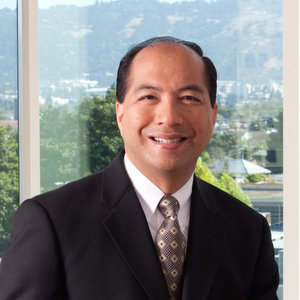Jan 20
2015
The Inexorable March toward Accountable Care: CMS Adds 89 New MSSP ACOs
Guest post by Ken Perez, vice president of healthcare policy, Omnicell.

During much of 2014, there seemed to be a rising tide of negativism about the Centers for Medicare & Medicaid Services’ accountable care organization (ACO) programs. After losing nine of its participating organizations after its first year of operation, the Pioneer ACO model suffered some more high-profile departures in 2014.
In August, Sharp HealthCare, a five-hospital system in San Diego, Calif., exited the program, and the following month, three other ACOs—Franciscan Alliance in central Indiana, Genesys PHO in Flint, Mich., and Renaissance Health Network in Pennsylvania—also dropped out. Since the Pioneer program’s inception in January 2012, the total number of Pioneers has dropped by 41 percent, from 32 participants to 19.
The bad news wasn’t confined to the Pioneer program. An October 2014 survey by the National Association of ACOs (NAACOS) indicated that two-thirds of Medicare Shared Savings Program (MSSP) participants are “highly” or “somewhat” unlikely to remain in the ACO program as it currently stands. Clearly, the Medicare ACO ship certainly seemed to be sinking.
In an attempt to right the ship, on Dec. 1, 2014, CMS released a long-awaited 429-page proposed rule to modify the MSSP, seeking to retain as many of the current MSSP ACOs as possible and attract new participants to the program. The words “encourage” or “encouraging” appear almost 100 times in the document—with an eye, ultimately, toward greater ACO participation in risk-based models. However, in spite of CMS’s intention, NAACOS and the American Hospital Association’s initial responses to the proposed rule were generally critical. CMS is accepting public comments until Feb. 6, 2015, after which it will compose the final rule, a process which should take, if history is a guide, three to six months.
Against this backdrop of actual and threatened program departures, as well as the revamping of the MSSP program, CMS surprisingly announced on Dec. 22, 2014, the addition of 89 new MSSP ACOs. With this new class, CMS will have a total of 405 ACOs participating in the Shared Savings Program in 2015, serving more than 7.2 million beneficiaries. Adding the Innovation Center’s 19 Pioneer ACOs, CMS will have a total of 424 ACOs serving over 7.8 million beneficiaries, roughly one out of every seven Medicare beneficiaries.
While this latest cohort is smaller than the 123 ACOs added in 2014 and the 106 ACOs brought onboard in 2013, the 89 new ACOs have an average beneficiary population that is 67 percent higher than that of the previous pool. In addition, the new cohort has a service area that spans 40 states. As a result, there will be Medicare ACOs in every state (and Puerto Rico), with Alaska and Hawaii the only exceptions. Furthermore, the new ACOs will bring with them 23,000 physicians and other providers, building on the 17,000 providers that were added to existing MSSP ACOs in 2014.
The juxtaposition of the widely expressed concerns about the Medicare ACO programs with the addition of 89 new MSSP ACOs is fascinating. Apparently, the members of this new cohort were willing to accept the current terms and conditions, without any guarantees that CMS would subsequently “sweeten” the program. They joined the long, challenging march toward accountable care. The new ACOs’ enlistment is reminiscent of these words from Chuck Yeager, retired brigadier general in the United States Air Force and record-setting test pilot: “You don’t concentrate on risks. You concentrate on results. No risk is too great to prevent the necessary job from getting done.”